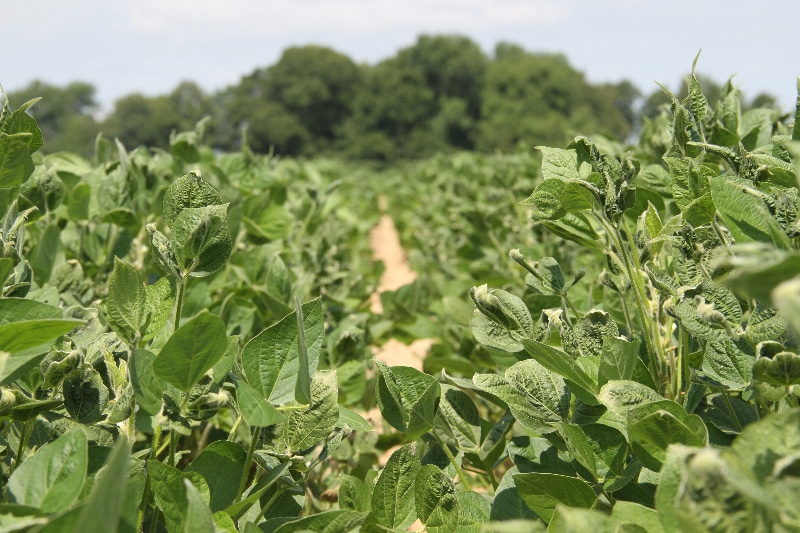
It has been a struggle for Mid-South state officials to determine how best to address an abundance of dicamba-related drift problems this year.
Part of the problem is the planting of dicamba-tolerant soybeans was allowed in 2016 outpacing approval of new formulations of the herbicide. The incentive to kill problem pigweeds with illegal over-the-top dicamba applications proved too great for many growers.
On September 30, the Arkansas State Plant Board took the next step in moving to regulate new the technologies and products. Otis Howe, chairman of both the full Plant Board and Pesticide Committee – which came up with proposed regulations in late summer – spoke with Delta Farm Press shortly after the meeting. Among his comments:
On the September 30 meeting of the full Plant Board…
“The votes were all unanimous, with one abstention, in favor of the proposed regulations. It was clean, in and out.
“Plant Board staff read the changes in regulations for Enlist Duo and then for the dicamba formulations. There are also training processes that were voted on.”
IT’S FREE! Stay informed on what’s happening in Mid-South agriculture: Subscribe to Delta Farm Press Daily.
The bulk of the changes are contained in section titled “Proposed changes to the Requirements For Commercial, Non-Commercial, and Private Application of Dicamba Containing Pesticides” Those changes read:
1. Applications of dimethylamine salt and acid formulations of dicamba are prohibited.
Exemption: Applications of dimethylamine salt and acid formulations of dicamba made to pastures or rangeland are allowed provided the application site is 1 mile in all directions from susceptible crops.
2. From April 15th through September 15th of each year, products labeled for agricultural use that contain diglycolamine salt and sodium salt of dicamba may not be applied.
Exemption: Applications of products containing diglycolamine salt and sodium salt of dicamba made to pastures or rangeland are allowed provided the application site is no closer than 1 mile in all directions to susceptible crops.
3. Applications of products with this classification shall not be made to Enlist or Xtend seed technologies without Commercial, Non-Commercial, and Private Applicators first completing New Technology Certification training. New Technology Certification training must be obtained through the Cooperative Extension Service. Upon request in writing, proof of New Technology Certification training must be provided to the State Plant Board.
“In the end, we voted to go to a public hearing. That’ll happen on Nov. 21 at 1:30 p.m. On that date, people will have the chance to speak. Or, if they’d prefer, they’re free to send in written comments prior to that.”
Next step
Where does it go from there?
“Right now, staff is sending a summary of what we did to the governor’s office. The way I understand it, the governor has the opportunity to review anything we do.
“Once the public hearing happens in November, the Plant Board will vote whether to make any amendments to the proposed regulations or vote on them as they are now.
“If the Plant Board passes anything it will go to the Legislative Council (of the Arkansas legislature). They’ll have a chance to look at what we’ve sent them.”
On the proposed regulations…
“The Pesticide Committee worked extremely hard, did due diligence. We met five times from July through September and listened to weed scientists and representatives of the three companies involved.
“The committee took into account all the science we could get our hands on. And that’s the way the committee has always worked: make decisions based on the best information. The full board recognized that and approved the committee’s proposals.”
Testing, testing
On the need to test new dicamba formulations in the state…
“I’m unsure what (Monsanto’s) conversations with the University of Arkansas have been. I can say the committee and board have encouraged all companies to work with our university scientists. That isn’t anything new, it’s in our DNA and what we’ve always done.
“If you look at the original Plant Act, lawmakers understood how important our university scientists are to the process. They put the head of the Department of Entomology and head of the Department of Plant Pathology on the Plant Board. They were put there to provide the kind of advice we’ve always needed.
“The university researchers have simply not had the opportunity to look at some of the products folks are wanting to sell. We’ve made decisions based on the products they have had an opportunity to study.
“The committee and board want new technologies to be available to growers. We need them with all the resistance in weeds. How many articles have been in Delta Farm Press just on that topic?
“At the same time, we want growers to able to use the technology they choose. That might be Enlist Duo, Roundup Ready Extend, or even plan Roundup or conventional – some growers don’t have a weed problem. LibertyLink has been doing a great job. Growers should be able to rotate technologies to offset, or delay, more resistance developing.
“We don’t want to force producers to use a technology because they’re scared of being drifted on by their neighbor. That’s what happened in lots of cases this year.
“It’s important everyone understands we’re not trying to restrict the use of new technology. But it needs to be made available in a way that is successful and safe.”
About the Author(s)
You May Also Like




